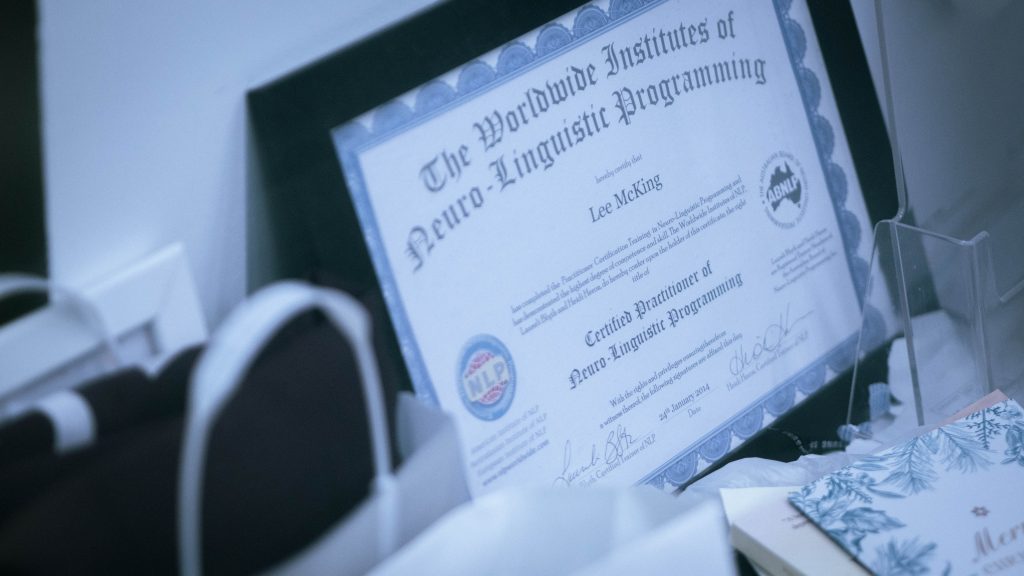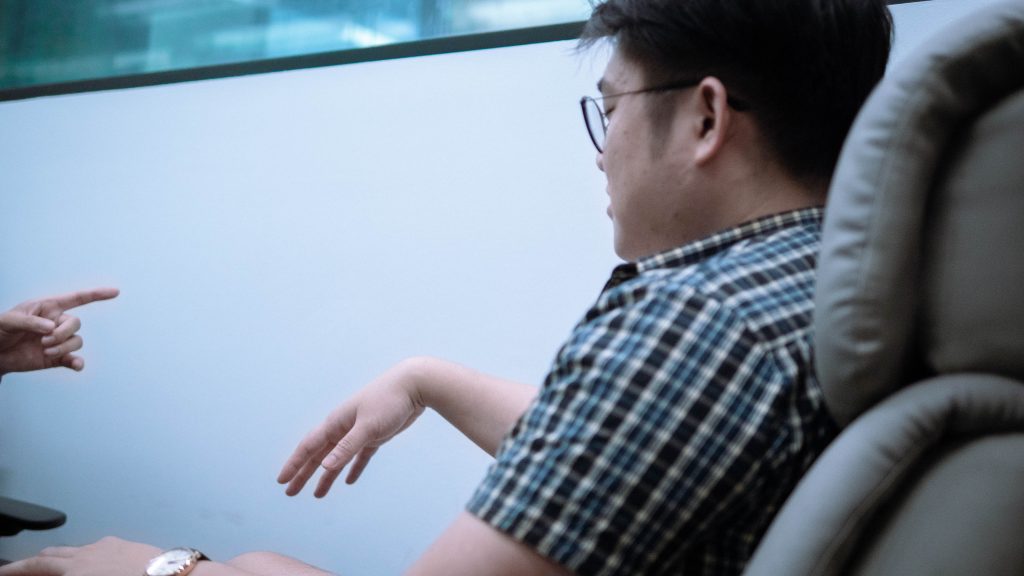“It started when she was 9, and she doesn’t want to do sex, but forced right, so how?
“Her unconscious mind was like okay, I don’t want to have sex, so how to not have sex anymore? Develop a problem. Okay, cervical cancer,” McKing says, as if it is the most natural thing in the world.
Lee McKing, a hypnotist, is giving me an example of the extent our unconscious mind goes to protect us from external threats. This conversation continues to resonate in my head even after a few days of my meeting with him, who reached out to Rice last month.
“For example, if you have a girlfriend, and your girlfriend tell you she got cervical cancer, would you want to have sex with her?” he asks, almost rhetorically, waiting for me to nod in agreement.
I do not. Instead, I am filled with a potent mix of awe and bewilderment, a state I remain in throughout the three hours I spend with the man who invited me to see if he can help me with any issues that are affecting my quality of life.
My problem? Procrastination.
As a writer, I always have a few days to write an article, but never seem able to do it until the eleventh hour. Because of this, I’ve become intimate friends with 3 AM mornings, and by the time I get to work, it’s usually on a few hours of sleep.
This cycle has repeated itself since the day I started, and at 25, I already feel jaded enough that I’ve spent inordinate amounts of money in the hopes of winning TOTO. All this, so I can quit my job and lie on a bed of Jamon Iberico ham with my dog, Kaiser.
Unfortunately, I’ve not been able to beat the odds of 1:13,983,816, so the slog has to go on. Also, the problem is clearly me, and not the job that I do.

“Nah, choose,” McKing offers, giving me the option of a white or a purple name card with his branding.
After picking the purple one, he tells me this is a method he employs to make sure people remember him. Pretty ingenious, I’ll admit.

McKing, whose name was inspired by Steve McQueen, starts by explaining the power of the unconscious mind and how when paired with his methods, clients can be cured of pretty much any condition, be it mental or physical. According to him, he has a cure-rate of 90 to 95%.
Over the next hour, he tells me about some of his most impressive cases. This is also when I realise that hypnotherapy might be nothing more than a pseudoscience.

“I saw him for 1 session, he told me his past life where he was an alien. He offended the alien queen, so she put a curse on him. Once he got forgiveness from the alien queen, he solved the problem. One session, he put his resume together and go apply for job,” McKing says, not once blinking his eyes.
Having been close to several people who have had to manage and live with their depression, I find it hard to believe that he genuinely thinks he can “cure” depression in less than an hour. Especially when it’s a condition people battle with their whole lives just to keep under control.
“But I was under the impression that depression cannot be cured, it’s something that you manage,” I suggest, swallowing my pride.
“This is what scientists, psychologists and counsellors will say. Why? Because they don’t know how to cure the problem. If you go to a psychiatrist for depression, you know what would they do? Therapy or medication. They help you to manage it, they don’t help you to cure it, cause they don’t know how,” he rebutts.
As I struggle to keep my mouth closed, he continues.
“If let’s say for example, someone with depression comes to see me, I will do a regression, go back in time, find the seed. Then we find that original seed of sadness, resolve it, forgive whoever hurt you, let go of whatever. Now we fast forward, the seed is no longer there.”
McKing then asks, “Will there be a tree of sadness?”
“No?” I utter, begrudgingly and slightly confused.
“Cured liao lor,” he says.
The simplistic manner in which he explains all of this reminds me of the song ‘Turn It Off’ from the Broadway Musical The Book of Mormon. In it, gay missionaries from the Mormon church are told to compartmentalise their homosexual tendencies into boxes in their head, and then crush it as a means to “cure” their homosexuality.
The only difference is that The Book of Mormon is a comedic play. Lee McKing truly believes in this.

“This client said he saw a vision where he saw himself driving a red Ferrari down Raffles Place. He said to me, bro, am I going to get a Ferrari?”
According to McKing, this client had to fight a demon army during his hypnosis, and Lord Shiva lent him his spear. Eventually, he took the spear of Lord Shiva and killed the demon army. This meant that he had slayed the inner demons inside him; the negative thoughts holding him back.
Before I can even comprehend the complex rationale of the man using a demon army as a metaphor for his inner demons, McKing tells me that the client ended up buying a Ferrari 2 weeks later.
Giving him the benefit of doubt, I ask if it could’ve been placebo rather than actual hypnotherapy that helped to “cure” his clients.
He seems almost offended, and adjusts his seat in response, looking as if he’s about to unveil his trump card.
“I give you an example. Bulimia, you eat and vomit, right? In her case she was 9 years old, she saw her mother vomit. This planted an idea in her head that it’s ok to vomit. So, she forgive her mother, done.”
Continuing, “I texted her a week later and she told me ‘I don’t know how to describe it but there’s no more pain in my stomach and I don’t vomit anymore’. Is it placebo?”
He pauses, smiles, and waits for an expression of awe to transform my face. It does not come.
McKing forges ahead.
“This 83-year-old man, he has red rashes all over his body. He goes to a medical doctor, don’t know how many medication he has for one-year plus. I did one session of hypnosis with him, in fact, only about 20 mins.
“By the end of 20 mins. I wish I had the idea to take video, really. Can you imagine, his hand was covered in all red rashes, and it started disappearing on the spot. The whole body was clean except for a tiny spot of red rashes. I told him, if it doesn’t disappear by itself, next week I will come back and see you again.”
“Is it placebo?” he asks, relentless in his efforts to convince me.
At this point, I am convinced that like McDonald’s, with whom his name shares the “Mc” prefix, his product is merely fast and of dubious quality.

By now, I am 90 to 95% convinced that his entire method is hogwash. Every single claim is a medical marvel so far, and simply beggars belief.
If his methods are such a surefire guarantee for a cure, why is he operating out of a $1600/month co-working space instead of a clinic in Gleneagles? Why isn’t his work considered the best thing since Fleming discovered Penicillin?
It’s one thing for me to doubt his methods, but it’s another thing entirely when the results don’t speak for themselves, especially when it’s been 3-4 years since he started doing this.
Soon after, we get back to our agenda of “curing” my procrastination. Yep, at this point, we haven’t even begun with my actual treatment.
And so we kickstart things with a “Suggestibility Test”. This would help him to gauge how easy it would be for me to be hypnotised. For this, I rest my palms on my thighs, close my eyes, and relax. I follow his instructions, and do my best to let go of any remaining shreds of cynicism. After all, I might be suspicious of his methods, but my desire to get rid of my procrastination is as real as the man in front of me.
McKing goes on to speak in hushed tones.

He practically whispers, “I want you to focus on the lightness in your wrist. Allow it to spread down your fingers and all the way to your arms. What’s gonna happen is this. As you imagine your right hand getting lighter and lighter, In that moment, your unconscious mind is going to take your right hand and lift it up till it’s floating about an inch or two”

For the briefest of moments, I believe.
Then he speaks.
“Try and see what you can get from your hand. See if it can help to cure your problem of procrastination. It would be really cool if you could do that.”
A fairly innocuous statement, but it is here that I realise this isn’t going to work for me.
By saying it would be “cool”, he’s trying to attach a positive reaction to me finding a cure. I also understand that by reciting all his successful cases, he is, in fact, priming me. By describing a number of successful cases, he was shaping my mind to be more receptive to the idea of being hypnotised and cured.
If I believe I can be healed and I want to be healed, I will be free of any ailments.
And who wouldn’t want that? After all, what’s the alternative: to believe one might never be rid of their problems? Not even with the help of of a sharply dressed man with a laundry list of success stories?
After a rather painful process, he concludes that my problem with procrastination is now out of my body, and that should it ever come back, I was to hit it away with an imaginary baseball bat—one of the symbols that came up in my mind during the hypnosis.

If anything, the one thing that McKing got spot on was that the unconscious mind is indeed very powerful. So much so that it can positively influence our physical beings. All it takes is an open mind, and a boatload of fairy dust (that one must ingest willingly and enthusiastically).
If someone believes in something and reaps benefits from it, who am I to judge whether or not it works? Does everything have to be reduced to a science? After all, to be human is to err.
Perhaps the one thing more valuable than a tangible result that McKing offers is hope. Hope gets people through the darkest of times, not the cold, calculated promise that science and numbers offer, which often comes with slim margins anyway.
Maybe the thing I should have tried to get McKing to fix was my cynicism, although it would have been a catch-22 situation, seeing as I would not have been hypnotised if I was cynical in the first place.
Ironically, I was in a trance only after leaving my meeting with McKing, although most of it was fuelled by shock and disbelief. It was only with the benefit of hindsight when I sat down to write this that I realised there was something to be gained from my hypnotherapy session.
But if you’re wondering whether or not I am still a serial procrastinator, all you need to know is two things:
- I’ve only just finished writing this article.
- It’s 4-fucking-AM in the morning.





